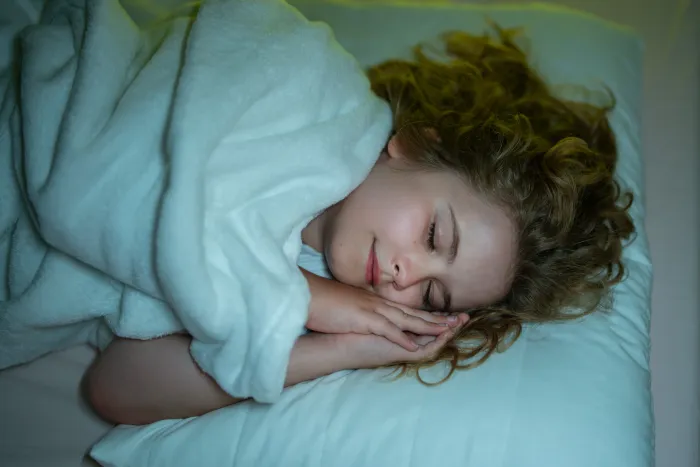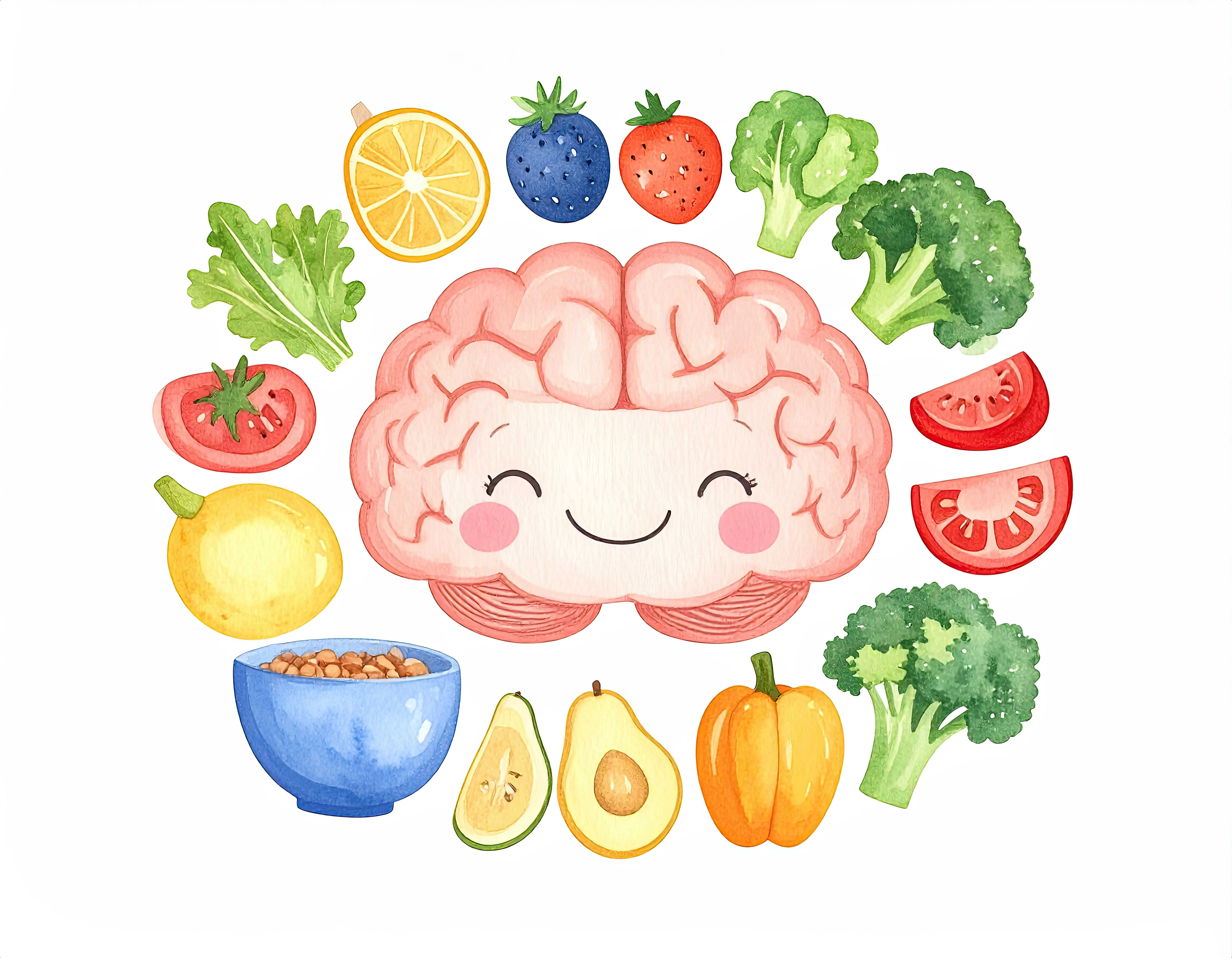Guide to the Importance of Sleep for Children
Discover why sleep is essential for children's growth, brain development, and emotional well-being. Learn how much sleep your child needs and practical tips to build healthy bedtime habits.

Written by Dr. Siri Nallapu
Reviewed by Dr. Dhankecha Mayank Dineshbhai MBBS
Last updated on 13th Jan, 2026

Introduction
As parents, we meticulously plan our children's meals, education, and activities, but one of the most critical pillars of their health often gets negotiated away: sleep. The importance of sleep for children extends far beyond simply preventing crankiness the next day. It is a fundamental biological process that fuels their growing brains, bodies, and emotional resilience. During those quiet hours of slumber, a child’s body is working overtime—consolidating memories, releasing essential growth hormones, and fortifying their immune system. When sleep is consistently compromised, it can have profound effects on their academic performance, behaviour, and long-term health. This article will delve into the science behind sleep's crucial role, provide clear guidelines on how much rest your child truly needs, and offer practical, actionable strategies to establish healthy sleep habits that will benefit them for a lifetime. Understanding this vital link is the first step in ensuring your child thrives.
More Than Just Rest: The Multifaceted Benefits of Sleep
Sleep is not a passive state of inactivity; it's an active and essential period of development and maintenance. For children, whose brains and bodies are developing at a rapid pace, quality sleep is as crucial as nutrition and love. The benefits of sleep for child development are vast and interconnected, touching every aspect of their well-being.
Brain Power and Cognitive Development
During sleep, especially during the deep and REM (rapid eye movement) stages, a child's brain is exceptionally busy. This is when learning is cemented. The brain processes and consolidates information gathered throughout the day, transferring it from short-term to long-term memory. This is vital for academic success, as it solidifies new skills like reading, math, and problem-solving. Studies have consistently shown that children who get adequate sleep have better attention spans, faster reaction times, and enhanced creativity. A well-rested brain is simply more efficient at absorbing and retaining knowledge.
Physical Growth and Body Restoration
You might have heard the old saying that children grow in their sleep—and it's scientifically true. The pituitary gland releases the majority of its growth hormone during deep sleep. This hormone is essential not only for increasing height but also for muscle development and cell repair. Sleep is also a time for the body to restore its energy reserves and repair tissues damaged during the day's activities. This restorative process is why sleep is so critical for athletic performance and recovery in active children.
Emotional Regulation and Mental Health
Have you ever noticed that a tired child is often a fussy or emotionally volatile child? There's a direct link. Sleep plays a key role in the brain's ability to regulate emotions. The amygdala, the brain's emotional center, becomes hyper-reactive when we're sleep-deprived. Meanwhile, the prefrontal cortex, which is responsible for rational thought and impulse control, becomes less active. This imbalance makes it difficult for children to manage frustration, anger, and sadness. Consistent, quality sleep is a powerful protective factor against anxiety, depression, and behavioural issues, acting as a cornerstone for robust emotional regulation and mental health.
Strengthening the Immune System
Sleep is a potent immune booster. During sleep, the body produces proteins called cytokines, which target infection and inflammation. When a child is sleep-deprived, the production of these protective cytokines decreases, making them more susceptible to common illnesses like colds and flu. Ensuring your child gets enough sleep is one of the simplest and most effective ways to strengthen their natural defenses and keep them healthy.
Consult a Paediatrician for the best advice
How Much Sleep Does Your Child Really Need? A Guide by Age
There is no one-size-fits-all number, but leading health organisations like the American Academy of Sleep Medicine provide clear, evidence-based guidelines. These recommended sleep durations by age include naps for younger children.
Here’s how much sleep children and teens typically need at each age:
• Infants (4-12 months): 12-16 hours per 24 hours
• Toddlers (1-2 years): 11-14 hours per 24 hours
• Preschoolers (3-5 years): 10-13 hours per 24 hours
• School-Age Children (6-12 years): 9-12 hours per 24 hours
• Teenagers (13-18 years): 8-10 hours per 24 hours
It's important to view these as a range. Some children will naturally need the higher end, while others may function well on the lower end. The key is to observe your child's mood and energy levels.
Recognising the Red Flags: Symptoms of Sleep Deprivation in Kids
Children don't always yawn and say they're tired. Often, the signs of sleep deprivation in toddlers and older children manifest as behavioural challenges. Be on the lookout for:
• Hyperactivity or irritability: Paradoxically, a tired child may seem wired and have difficulty settling down.
• Difficulty waking up in the morning: Needing multiple alarms or being groggy for a long time after waking.
• Emotional sensitivity: Crying easily, having dramatic meltdowns over minor frustrations.
• Problems with concentration and memory: Struggling in school, forgetting instructions.
• Falling asleep during short car rides.
• Craving for high-sugar, high-carbohydrate foods.
If you notice these symptoms of sleep deprivation persisting despite your efforts to enforce an earlier bedtime, it may be worth discussing with a paediatrician. Underlying issues like sleep apnea or restless leg syndrome can disrupt sleep quality. If your child’s condition does not improve after trying these methods, book a physical visit to a doctor with Apollo24|7 for further evaluation.
Building a Bedtime Fortress: Proven Strategies for Healthy Sleep Hygiene
Sleep hygiene refers to the habits and environment that promote consistent, uninterrupted sleep. Establishing a strong routine is your best defense against sleep problems.
The Power of a Consistent Bedtime Routine
A predictable, calming sequence of events signals to your child's brain and body that it's time to wind down. This bedtime routine for preschoolers and school-age children should last 20-45 minutes and occur at roughly the same time every night, even on weekends. An example could be: bath, brushing teeth, putting on pajamas, reading a book, and saying goodnight. Consistency is far more important than the specific activities.
Crafting the Ideal Sleep Environment
Make your child's bedroom a sanctuary for sleep. It should be:
• Cool: A slightly cool temperature is optimal for sleep.
• Dark: Use blackout curtains to block outside light. A small, dim nightlight is okay if it provides comfort.
• Quiet: Use a white noise machine to mask disruptive household or neighborhood sounds.
Navigating the Digital Dilemma: Screens and Sleep
This is one of the biggest modern challenges. The blue light emitted by tablets, phones, and TVs suppresses the production of melatonin, the hormone that regulates sleep-wake cycles. Establish a firm "digital curfew" at least one hour before bedtime. Charge devices outside the bedroom to avoid temptation. Instead, encourage quiet activities like reading, listening to soft music, or gentle stretching.
Conclusion
The evidence is clear: prioritising sleep is one of the greatest gifts we can give our children. It is not a luxury or an afterthought, but a non-negotiable component of their overall health and development. By understanding the profound importance of sleep for children, from boosting their cognitive abilities to stabilising their moods, we can make informed choices that support their well-being. Establishing healthy sleep habits—consistent routines, a sleep-friendly environment, and boundaries around screen time—requires effort, but the returns are immeasurable. A well-rested child is happier, healthier, and more ready to learn and engage with the world. Start tonight. Assess your child's sleep habits and make one positive change. Your future self, and more importantly, your thriving child, will thank you for it.
Consult a Paediatrician for the best advice
Consult a Paediatrician for the best advice

Dr Yaja Jebaying
Paediatric Gastroenterologist
9 Years • MBBS, MD PEDIATRICS, FELLOWSHIP PEDIATRIC GASTROENTEROLOGY AND HEPATOLOGY AND LIVER TRANSPLANTATION
Delhi
Apollo Hospitals Indraprastha, Delhi
(25+ Patients)

Dr. Rajesh Jha
Paediatrician
10 Years • M.B.B.S., D.N.B.(Pediatrics)
Noida
Apollo Hospitals Sector 26, Noida
(50+ Patients)

Dr. Deepa Passi
Paediatrician
29 Years • MBBS, MD
Noida
Apollo Hospitals Sector 26, Noida
(50+ Patients)

Dr. Debangana Chatterjee
Paediatrician
6 Years • MBBS, MD, DNB (Paed.)
Kolkata
MCR SUPER SPECIALITY POLY CLINIC & PATHOLOGY, Kolkata

Dr. Suhena Sengupta
Paediatrician
15 Years • MBBS, IPPC
Kolkata
MCR SUPER SPECIALITY POLY CLINIC & PATHOLOGY, Kolkata
Consult a Paediatrician for the best advice

Dr Yaja Jebaying
Paediatric Gastroenterologist
9 Years • MBBS, MD PEDIATRICS, FELLOWSHIP PEDIATRIC GASTROENTEROLOGY AND HEPATOLOGY AND LIVER TRANSPLANTATION
Delhi
Apollo Hospitals Indraprastha, Delhi
(25+ Patients)

Dr. Rajesh Jha
Paediatrician
10 Years • M.B.B.S., D.N.B.(Pediatrics)
Noida
Apollo Hospitals Sector 26, Noida
(50+ Patients)

Dr. Deepa Passi
Paediatrician
29 Years • MBBS, MD
Noida
Apollo Hospitals Sector 26, Noida
(50+ Patients)

Dr. Debangana Chatterjee
Paediatrician
6 Years • MBBS, MD, DNB (Paed.)
Kolkata
MCR SUPER SPECIALITY POLY CLINIC & PATHOLOGY, Kolkata

Dr. Suhena Sengupta
Paediatrician
15 Years • MBBS, IPPC
Kolkata
MCR SUPER SPECIALITY POLY CLINIC & PATHOLOGY, Kolkata
More articles from General Medical Consultation
Frequently Asked Questions
1. My 8-year-old only seems to need 8 hours of sleep. Is that okay?
While some children are naturally short sleepers, it's rare. The recommended range for school-age children is 9-12 hours. Consistently getting only 8 hours might be sufficient for some, but watch for signs of sleep deprivation like irritability or difficulty concentrating. If symptoms appear, gently try to move bedtime earlier by 15-minute increments.
2. What are some natural remedies for a child who has trouble falling asleep?
Focus on routine and environment first. A warm bath before bed can help lower the body's core temperature, which promotes sleep. Using a white noise machine and ensuring the room is completely dark can also work wonders. Avoid caffeine (found in chocolate and some sodas) in the afternoon and evening.
3. How can I handle my toddler’s sleep regression?
Sleep regressions are common around developmental leaps (e.g., 18 months, 2 years). The key is to maintain consistency in your routine. Offer extra comfort, but try to avoid introducing new sleep crutches (like bringing them into your bed) that will be hard to break later. Be patient; most regressions pass in 2-6 weeks.
4. Is snoring in children normal?
Occasional light snoring can be normal, especially during a cold. However, loud, persistent snoring, gasping, or pauses in breathing can be signs of sleep apnea, a serious condition that disrupts sleep quality. If you observe these symptoms, it's important to consult a doctor online with Apollo24|7 for further evaluation.
5. Should I wake my child up at the same time on weekends?
While a slightly later wake-up time on weekends is okay, try to keep it within an hour of the weekday schedule. Drastically different sleep times can create a 'social jet lag,' making Monday mornings particularly difficult and disrupting the body's natural circadian rhythm.




